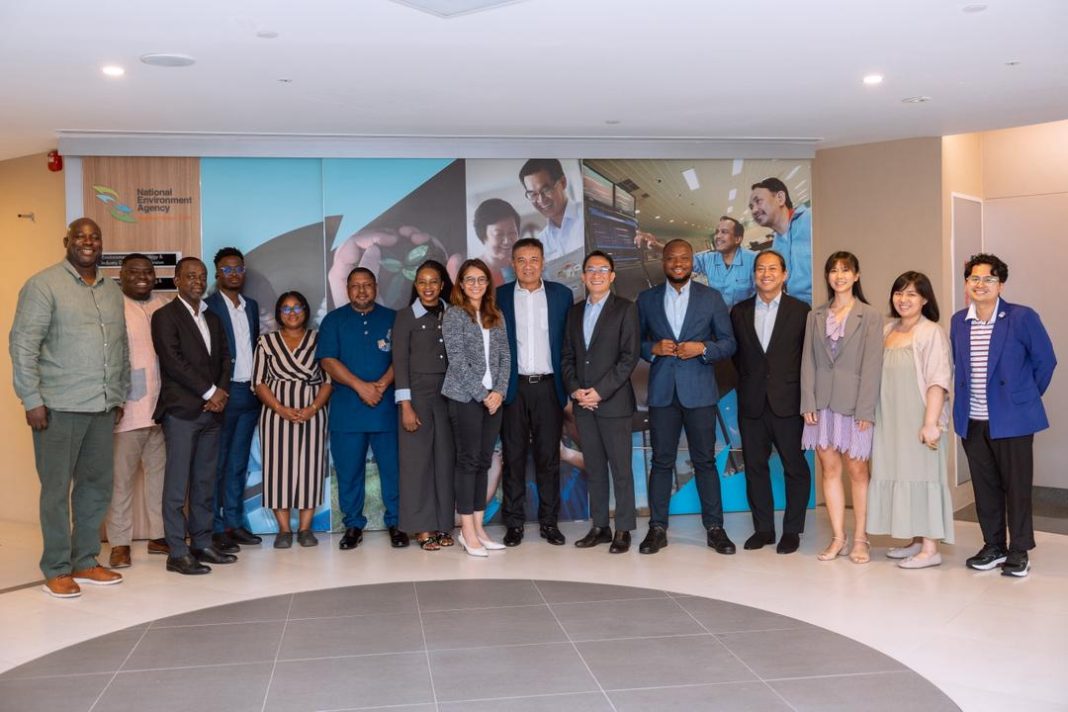The National Environment Agency (NEA), under the Ministry of Sustainability and the Environment (MSE) in Singapore, which is responsible for ensuring a clean and sustainable environment, has emphasized that Singapore currently collects all waste generated by its population of approximately six million.
According to Halmie Hussien Mattar, Director of the Environment Technology and Industry Development Division, the Singaporean government places a high priority on sanitation due to the country’s limited land space.
He added that three public waste collection companies have been contracted to ensure that no solid waste is left uncollected.
Speaking during an engagement with top executives of the Jospong Group of Companies, Mr. Mattar noted that Singapore takes a deliberate and strategic approach to addressing any issues that could compromise the maintenance of a clean environment.

He also revealed that although the Semakau Landfill, which is the main landfill site in the country, is expected to reach full capacity by 2035, proactive and actionable plans are already being implemented to manage future waste challenges.
“We take it seriously—if we are unable to manage waste, then we will not be able to keep Singapore clean. Waste management in Singapore is about keeping our environment clean, maintaining high standards, and ensuring sustainability in the process.
“Our Semakau Landfill will get full in 2035, and when that happens, how do we find the next alternative? Because we may not find one easily, we are already working toward a solution. Everything is centered around that.”
On his part, Dr. Peter Dagadu, Managing Director of Waste Landfill Company, a subsidiary of the Jospong Group of Companies, stated that for Ghana to effectively emulate Singapore’s best practices in waste management, every household must be equipped with a waste bin.
He stressed that local assemblies must enforce policies requiring each household to possess a waste bin and subscribe to a formal waste collection service.
“One of the key lessons from Singapore—which we’ve been reiterating in Ghana—is that every household must have a waste bin. This will ensure accountability and proper tracking of waste collection and disposal. Once a household has a bin, there’s a higher guarantee that the waste will end up in the right place. That’s what Singapore is doing well, and that’s why their waste collection efficiency is nearly one hundred percent,”
For her part, Dr. Priscilla Addo, Operations Manager at Sunyani Integrated Recycling and Compost Plant Limited (IRECoP), called on metropolitan, municipal, and district assemblies to help identify and properly educate waste collectors in various communities across Ghana on the best methods for waste segregation and recycling.
“I think sensitization and public education are very important. The assemblies must also identify people who pick up refuse informally in their communities. These individuals can be brought into the formal system, educated, and trained on best practices for waste collection.
“Right now, some people collect waste just to make money. But if they knew that the plastics they collect could be used to produce items like reflectors, socks, and more, it could help change the narrative in Ghana.”
